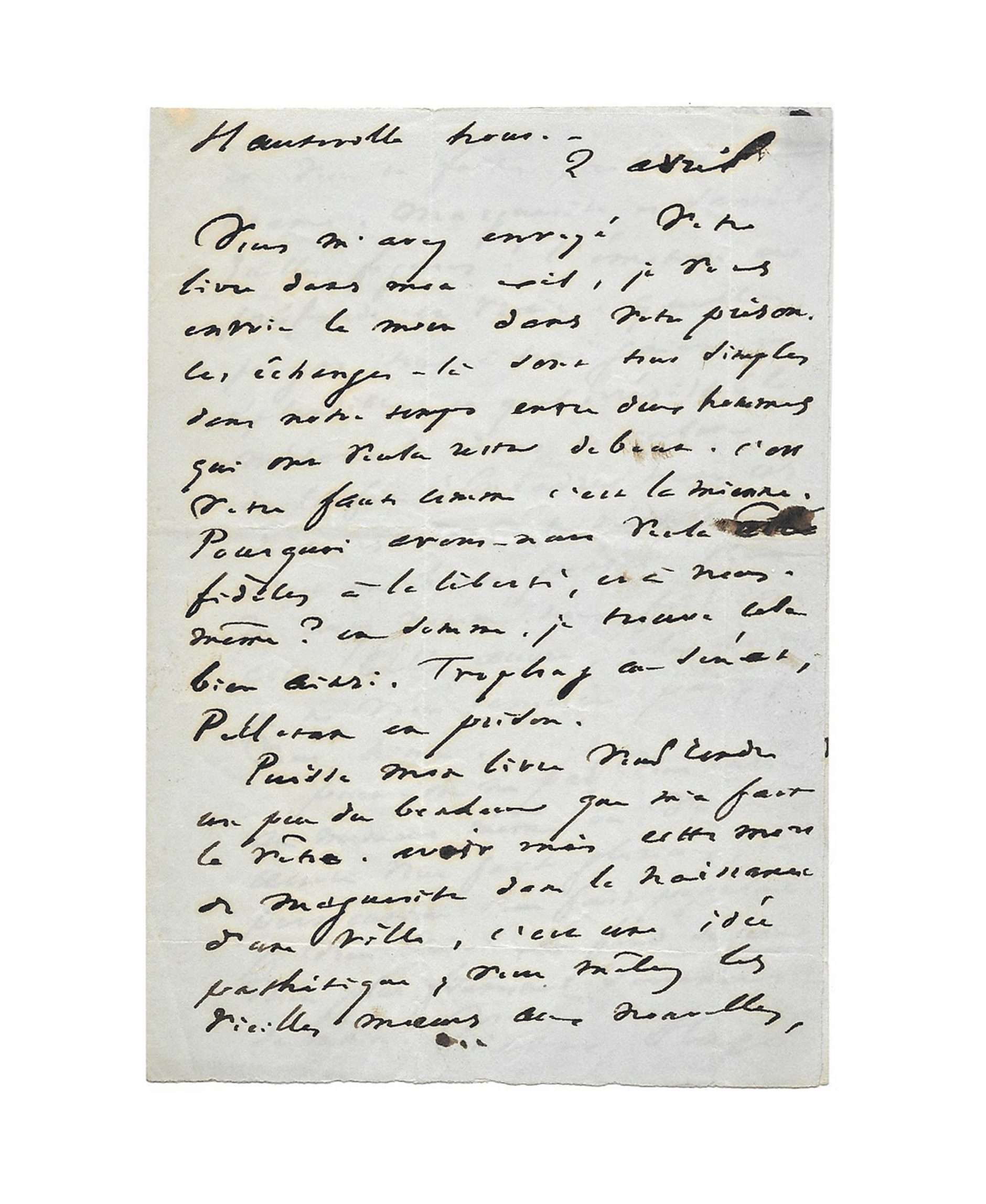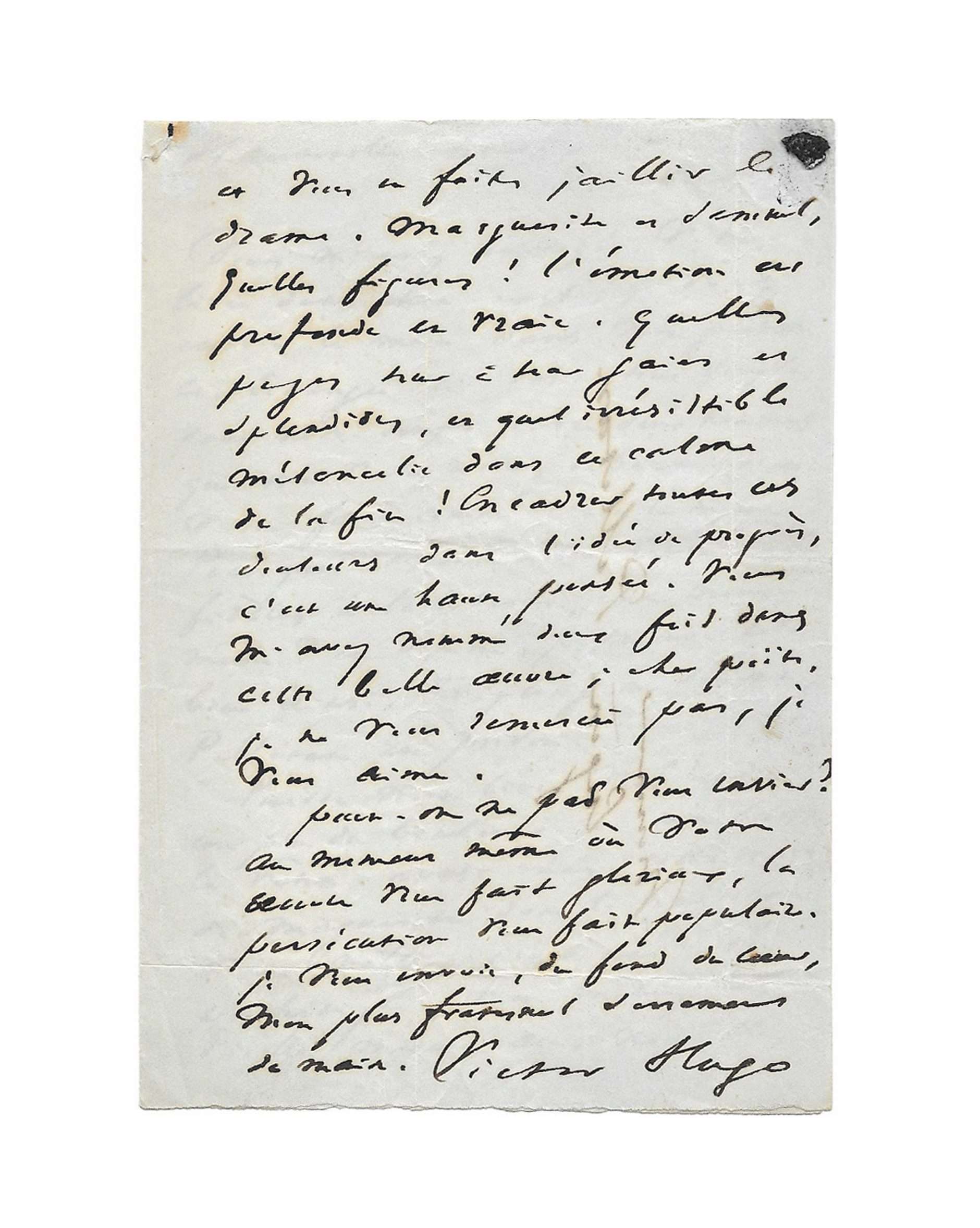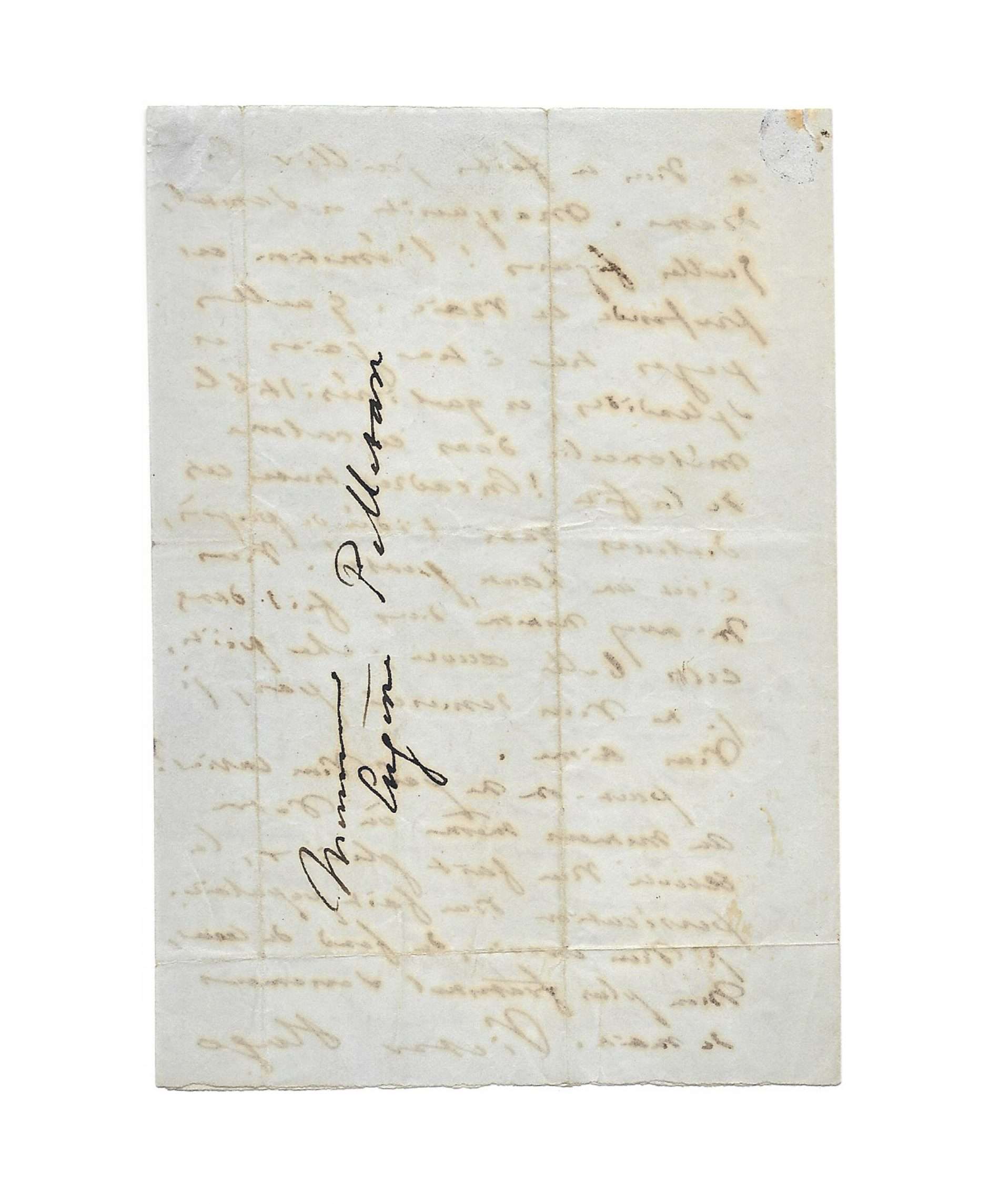HUGO, Victor (1802-1885)
Autograph letter signed “Victor Hugo” to Eugène Pelletan
Hauteville House, 2nd April [1861], 2 pages in-8 on double sheet
Very slight tear on top central margin without affecting the text, some remains of black seal
Beautiful letter of exile from the outlawed poet about freedom
“Vous m’avez envoyé votre livre dans mon exil, je vous envoie le mien dans votre prison. Ces échanges-là sont tout simples dans notre temps entre deux hommes qui ont voulu rester debout. C’est votre faute comme c’est la mienne. Pourquoi avons-nous voulu être fidèles à la liberté, et à nous-mêmes ? En somme, je trouve cela bien ainsi. [Raymond-Théodore] Troplong au Sénat ; Pelletan en prison.
Puisse mon livre vous rendre un peu du bonheur que m’a fait le vôtre. Avoir mis cette mère de Marguerite dans la naissance d’une ville, c’est une idée pathétique ; vous mêlez les vieilles mœurs aux nouvelles, et vous en faites jaillir le drame. Marguerite et Samuel, quelles figures ! L’émotion est profonde et vraie. Quelles pages tour à tour gaies et splendides, et quel [sic] irrésistible mélancolie dans ce calme de la fin ! Encadrer toutes ces douleurs dans l’idée de progrès, c’est une haute pensée. Vous m’avez nommé deux fois dans cette belle œuvre ; cher poète, je ne vous remercie pas, je vous aime.
Peut-on ne pas vous envier ? Au moment même où votre œuvre vous fait glorieux, la persécution vous fait populaire. Je vous envoie, du fond du cœur, mon plus fraternel serrement de main. Victor Hugo“
Victor Hugo here acknowledges the receipt of Eugene Pelletan’s latest book, The Birth of a City, Pagnerre, 1861 [Royan].
The authorities of the Second Empire were looking for an excuse to prosecute Eugene Pelletan. It was provided on November 3, 1860, by a long article of six columns: Freedom as in Austria. Pelletan posed the paradox of the spectacle of Austria, the very symbol of absolutism in Europe, in which Emperor Franz Joseph introduced liberal reforms, and France, the homeland of freedom, subject to the omnipotence of Napoleon III. Prosecuted for “excitement at hatred and contempt of the government”, he was sentenced to three months in prison and a fine of 2000 francs.
Raymond-Theodore Troplong (1795-1869) was a lawyer and politician. Co-editor of the original text of the 1852 Constitution, he was elected senator the same year. He was rapporteur of the senate-consult re-establishing the Empire, he legitimized the coup d’etat of Napoleon III.





